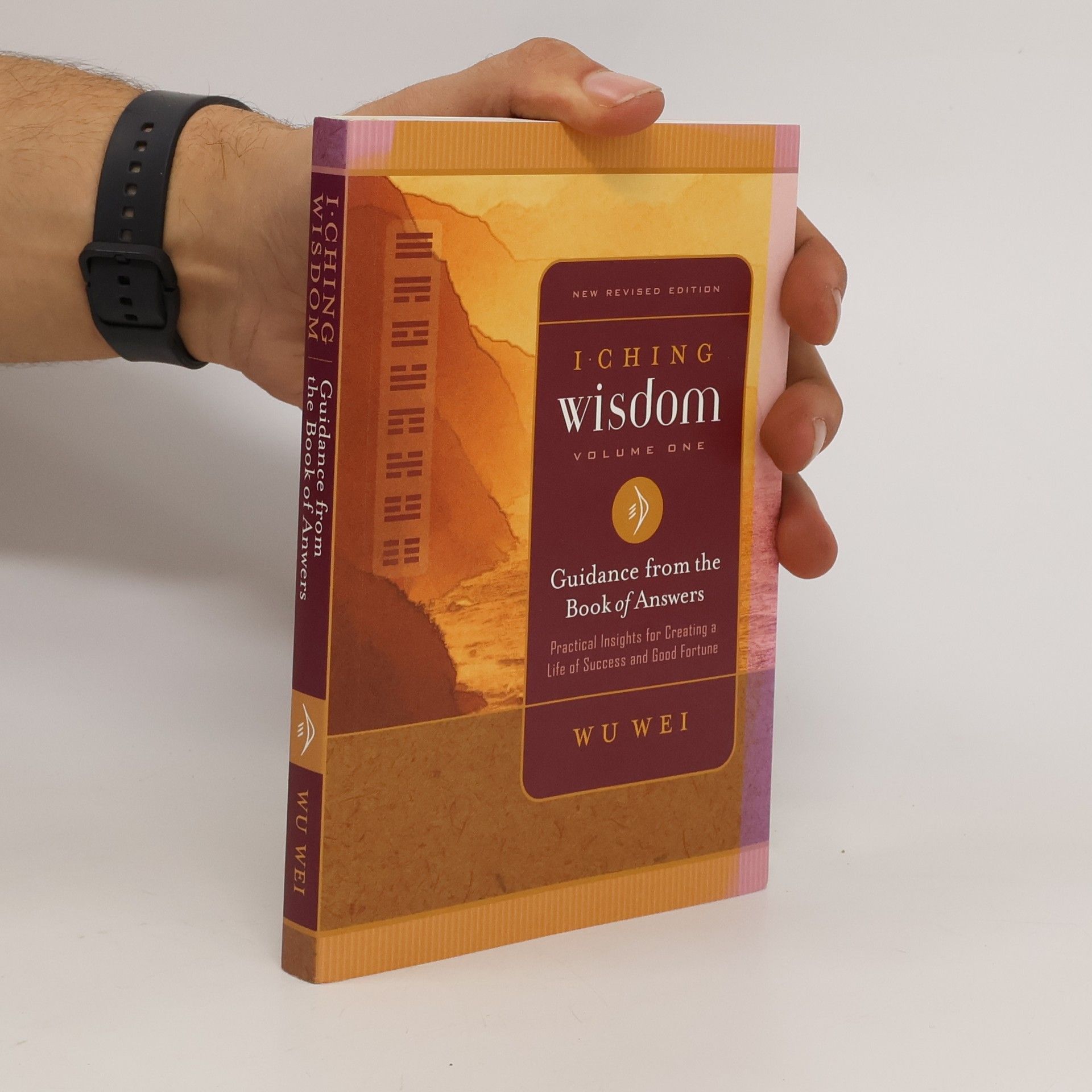Kampf der Systeme
Die amerikanisch-chinesischen Beziehungen im Zeitalter des strategischen Wettbewerbs
Dieser Autor des 20. Jahrhunderts, bekannt unter dem Pseudonym Wei Wu Wei, war ein taoistischer Philosoph und Schriftsteller. Seine Werke tauchten tief in Philosophie und Metaphysik ein und schöpften sowohl aus östlichen als auch westlichen Traditionen und esoterischen Lehren verschiedener Religionen. Sein Schreiben wird oft als Aufzeichnung seiner persönlichen Suche nach Befreiung wahrgenommen. Wei Wu Wei mied konventionelle Ausdrucksformen und konzentrierte sich stattdessen darauf, durch philosophische Untersuchung und Metaphern tiefgreifende Wahrheiten zu vermitteln.






Die amerikanisch-chinesischen Beziehungen im Zeitalter des strategischen Wettbewerbs
In this invaluable companion guide to the universal wisdom and guidance of the I Ching, Wu Wei has extracted the I Ching's deepest wisdom in the form of simple yet profound sayings that the greatest Chinese sages have preserved for thousands of years because of their inestimable worth. To these sayings, Wu Wei has added his enlightened comments to help us apply the empowering and practical wisdom of the I Ching to obtain the wonderful gifts we all seek: prosperity, peace, love, and happiness. Each saying is accompanied by a delightful Chinese ink drawing done in the Zen style by the author.
This book provides a social and cultural history of Jewish art in Nazi Germany, with a focus on the Jewish artists, art critics, and audiences in Nazi Bavaria. číst celé
This sequel to the popular I Ching Wisdom Volume One contains more of Wu Wei's profound sayings drawn from the I Ching's deepest wisdom. I Ching Wisdom Volume Two also contains more of Wu Wei's delightful Chinese ink drawings done in the Zen style and profound sayings drawn from the I Ching's deepest wisdom. Wu Wei has added his enlightened comments to these sayings to help us apply the practical, timeless wisdom of the I Ching to our lives. The I Ching's insights, says Wu Wei, help us steer a safer, clearer course through the uncharted journey of our lives, teach us to recognize and avoid the pitfalls that beset the path of the unenlightened, and show us how to "soar to the heights of success and good fortune."
The book explores the advancements in modern printing technology that enable the creation of thin, affordable electronics. It highlights the unique properties of printed electronics—such as flexibility, stretchability, and portability—that make them suitable for diverse applications, including wearable devices, smart packaging, healthcare solutions, and automotive innovations. Additionally, it serves as an educational resource for advanced courses in materials science and engineering, reflecting the growing significance of this field.
Engaging Japanese and Tibetan Traditions, 1912-1949
The book delves into the influence of esoteric Buddhist traditions on China's religious landscape, utilizing a diverse array of previously unexplored Chinese sources. It offers insights into how these traditions have interacted with and transformed local beliefs and practices, revealing the complexities of China's spiritual heritage. Through in-depth analysis, it uncovers the significant yet often overlooked impact of esoteric Buddhism within the broader context of Chinese religion.
King Gesar is an epic from Tibetan folk tales, legends, folk songs and proverbs. Representing the highest achievement ancient Tibetan culture, it has been in circulation for centuries. It is an encyclopedia-like masterpiece reflecting the history the ancient Tibetan society.
Classical Chinese gardens are one of the important parts of Chinese traditional culture. There are imperial gardens in the north China, while private landscape garden in the south. As the special form and carrier of Chinese architectural culture, classical Chinese gardens express the unique charm of oriental culture. With the concise text and beautiful pictures, this book comprehensively introduces the evolution, building characteristics and artistic achievements of classical Chinese gardens, which shows the great value of Chinese gardens. This book covers more than 50 classical Chinese gardens and is the high-quality work of this kind in recent years. In this book, there are about 60 thousand words, 300 photos covering the gardens all over China, and more than 30 plans, sections and color presentation pictures of the ancient architecture.
Stylowa kanapa czy praktyczne rozkładane łóżko? Piękna komoda czy funkcjonalna duża szafa? Kuchnia z otwartymi szafkami czy szuflady mieszczące wszystkie potrzebne produkty? Kiedy przeglądamy katalogi wnętrzarskie, często myślimy: Świetny pomysł, ale czy sprawdzi się na niewielkim metrażu? Jak urządzić mieszkanie, by było jednocześnie stylowe i wygodne? Co zrobić, by odzwierciedlało naszą osobowość, a wszystkie przedmioty miały swoje miejsce? Kompaktowo to niezwykły poradnik, który pomoże ci optymalnie wykorzystać każdy metr kwadratowy twojego mieszkania. Uporaj się z bałaganem i nadmiarem rzeczy, zadbaj o swój dom i uczyń go miejscem dającym wytchnienie! Znajdziesz tu: • praktyczne porady, • gotowe rozwiązania, • złote zasady, które sprawią, że nawet „nieustawne” pomieszczenia nabiorą blasku. LU WEI – chińska projektantka wnętrz, która w proponowanych rozwiązaniach łączy wszystkie najlepsze cechy azjatyckiego minimalizmu i umiłowania porządku i harmonii w stylu Marie Kondo.